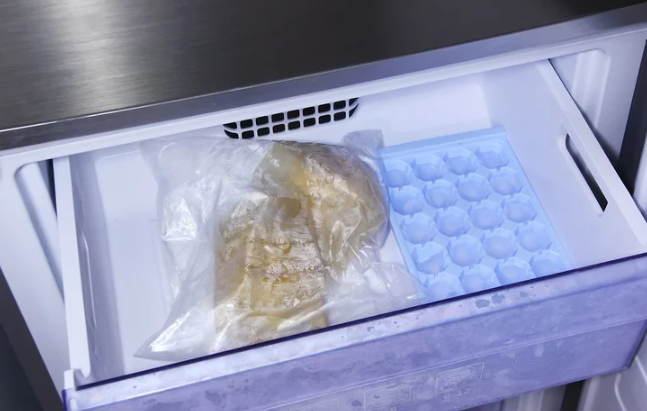How to store dough of a pizza
Hey there, fellow baking enthusiasts! Picture this: you’ve just finished kneading your dough to perfection, and now it’s time to let it rest and rise. But what if life gets in the way or you simply want to plan?
Fear not! We’re here to unravel the mysteries of dough storage and arm you with the knowledge to keep your dough fresh, vibrant, and oh-so-delicious, whether you’re a dough-slinging pro or a dough-venturing novice. This guide will take you through the art of how to defrost pizza dough . From overnight storage when dreams of fresh bread dance in your head to harnessing the power of your fridge or freezer. Get ready to unlock the secrets to make your dough sing with flavor, and be ready whenever your baking heart desires.
So, roll up your sleeves, and dust your hands with flour. Let’s delve into the wonderful world of dough storage!
Storing Dough Overnight:
Sometimes you must prepare the dough in advance to save time or enhance flavor development. To store dough overnight, follow these steps. First, shape the dough into a ball and place it in a lightly greased bowl. Cover the bowl tightly with plastic wrap or a damp kitchen towel. Store the bowl in a cool, draft-free area, such as the countertop or the refrigerator. If the room temperature is warm, refrigeration is recommended to prevent over-fermentation. The dough can be left overnight, typically for up to 24 hours, allowing it to rise slowly and develop a more complex flavor profile. The next day, remove the dough from the fridge and let it come to room temperature before proceeding with your baking recipe.
Storing Dough in the Fridge:
A refrigerator is a fantastic tool for slowing down the dough’s fermentation process, which can be particularly useful when you want to prepare the dough in advance or if you need to pause the baking process. To store the dough in the fridge, follow these steps. Shape the dough into a ball and place it in a lightly greased bowl. Cover the bowl tightly with plastic wrap. Store the dough in the refrigerator, where it will continue to rise at a slower pace. Most dough can be refrigerated for up to 72 hours, but using it within 48 hours is recommended for optimal results. When you’re ready to bake, take the dough out of the fridge and allow it to come to room temperature before shaping and baking it.
Storing Dough in the Freezer:
If you want to extend the shelf life of your dough or have some on hand for future baking projects, freezing is a fantastic option. To store the dough in the freezer, follow these steps. Shape the dough into a ball and place it in an airtight, freezer-safe bag or container. Here at Pizza Ovens Hub, we label the bag or container with the date for easy reference. You can also do that for your ease. Freezing can preserve the dough’s quality for up to 3 months, but it’s best to use it within 1 to 2 months for optimal results. When you’re ready to use the frozen dough, transfer it to the refrigerator and let it thaw overnight. Once thawed, bring the dough to room temperature before shaping and baking it.
Storing Bread Dough Overnight:
Properly storing bread dough overnight for those delightful homemade loaves can enhance the final result. To store bread dough overnight, follow these steps. Shape the dough into a smooth ball and place it in a lightly greased bowl. Cover the bowl tightly with plastic wrap or a damp kitchen towel. Store the bowl in a cool place like the refrigerator to slow the rise. The dough can be left overnight, allowing it to ferment slowly and develop deep flavors. The next day, remove the dough from the fridge and let it rest at room temperature for about an hour before shaping it into a loaf and proceeding with your baking instructions. This rest period helps the dough relax and makes shaping easier.
Conclusion:
Knowing how to store dough properly is key to achieving exceptional baking results. Whether you’re storing it overnight, in the fridge, or the freezer, following the right techniques ensures that your dough remains fresh, flavorsome, and ready to be transformed into delicious baked goods.
By understanding the principles of dough storage, you can have the convenience of preparing dough in advance, the flexibility to pause the baking process, and the joy of having homemade dough at your fingertips whenever inspiration strikes.
So, go ahead and store your dough with confidence, and let your baking adventures unfold! For more tips and tricks you can visit Pizza Ovens Hub





